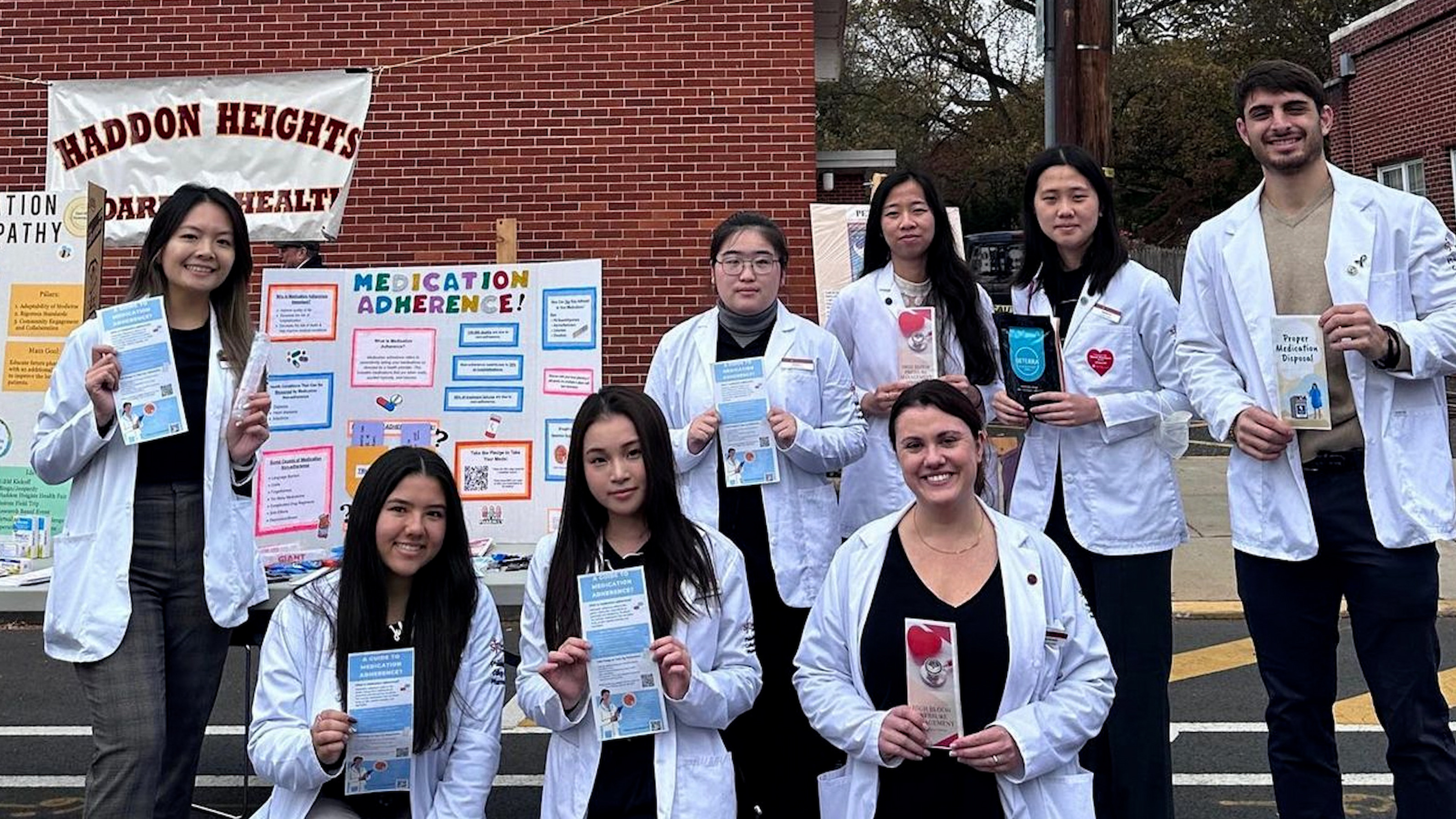Making an Impact on Diversity and Inclusion in the Workplace
Saint Joseph's new concentration in diversity, equity and belonging for master’s degree students in criminal justice and organization development and leadership aims to give graduates the tools to be changemakers at organizations navigating these issues with heightened focus.
KEYS TO THE ARTICLE
- Starting this fall, students earning master’s degrees in criminal justice and organization development and leadership can pursue a concentration in diversity, equity and belonging.
- The new concentration comes as diversity, equity and inclusion (DEI) issues in the workplace are taking on heightened importance, as research shows diverse organizations are more productive and innovative.
- The concentration includes courses focused on facilitating inclusive conversations and methods for researching, implementing and evaluating DEI initiatives.
Diversity and social justice are issues that have been top-of-mind for all of us recently. Black Lives Matter, the marriage equality movement and the movement to end mass incarceration have all shed light on the harsh inequities in our country. Private companies, nonprofits and government agencies alike are talking about how to address diversity and inclusion in the workplace with heightened urgency.
With a new diversity, equity and belonging concentration for students pursuing master’s degrees in criminal justice and in organization development and leadership, Saint Joseph’s aims to give graduates the tools to take on key roles as organizations navigate these issues.
“I was drawn to Saint Joseph’s University because of its mission-driven, institution-wide approach to diversity, equity and inclusion, and its clear understanding that the nation’s universities have a responsibility to ensure students leave their college experience ready to lead and thrive in a diverse workforce and society,” says Nicole R. Stokes, Ph.D., associate provost for diversity, equity and inclusion.
The Importance of Diversity and Inclusion in the Workplace
The benefits of a more diverse workforce have been extensively researched and are well documented. Increased productivity, creativity and profits to start. Improved employee engagement and reduced employee turnover. A more positive public perception of company reputation. And the benefit of deeper cultural insights that result from a wider range of skills.
Of particular interest to higher education, millennials are increasingly perceptive to their work environment. In addition to work satisfaction, they want their work life to reflect the society they live in.
All of this matters to job seekers, according to a Glassdoor poll: 67% counted diversity as a factor in their evaluation of companies. Another survey from Deloitte’s Leadership Center for Inclusion found that employee engagement increased to 83% when millennials believe their organization has a diverse work culture.
Our goal has always been to develop future organizational managers who can make changes within an organization to bring it to fit with changing contexts.”
Aubrey Wang, Ph.D.
Professor of Educational LeadershipGrounding Students in Diversity and Inclusion Best Practices
“Our goal has always been to develop future organizational managers who can make changes within an organization to bring it to fit with changing contexts,” says Aubrey Wang, Ph.D., professor of educational leadership and director of the program for the department of organization development and leadership.
Change is the one constant facing leaders of complex organizations in today’s world. Encarna Rodriguez, Ph.D., professor and chair of the department of educational leadership, wants Saint Joseph’s to lead that change. “We need to adjust everything we do so that we’re having conversations not just about race, but also about issues of gender and sexuality as well.
Rodriquez adds, “We want to make organizations more dynamic, with our students engaged in those conversations.” The new concentration aims to create leaders who examine the connection between power and identity, and how that plays out within organizations.
The M.S. in organization development and leadership with a diversity, equity and belonging concentration is an alternative to more traditional business degrees, with a focus on the people side of change. Foundation courses for the new concentration that are being offered for fall semester will be online.
Graduates of St. Joe’s ODL program hold influential leadership positions in human resources, change management, coaching, diversity and inclusion.
Why Diversity and Inclusion Matters in Criminal Justice
“From a criminal justice perspective, we’re in crisis right now,” says Kim Logio, Ph.D., associate professor and chair of sociology.
The new track addresses that crisis, rooted in the Jesuit value of "care for the whole person," and embraces a human-centered approach to justice. Continues Logio, “The goal is for our students to graduate with an understanding of the structural arrangements that create inequality and ways to address it that are meaningful and lasting.”
The 30-credit master’s degree in criminal justice, offered online or on-campus, is composed of four core courses and allows the student to choose the remainder, depending on their unique area of interest. The diversity, equity and belonging track is offered online this fall, so it is available to online and on-campus students.
The criminal justice master’s degree is not just for future law enforcement officers. The diversity, equity and belonging concentration is especially relevant in the fields of forensic psychology, substance abuse counseling, mediation and victim advocacy. The program aims to create changemakers fluent in the language of social identity and the impact of social context and implicit bias. Says Melissa Logue, Ph.D., assistant professor of sociology and director of the program for criminal justice, “Having that understanding about inclusion, about diversity and about how to create this sense of belonging among people I think is important, regardless of what dimension that you may get into professionally.”
“We teach about the criminal justice system as a social structure,” adds Logio. “It’s not just about the individual changing their mindset, but about giving them the skills to examine structural arrangements that are true across the criminal justice system."
You can learn more about the master's degree programs in organization development and leadership and in criminal justice, along with Saint Joseph's other graduate offerings, by attending an upcoming virtual information session. View the full schedule.
Learn more about diversity, equity and inclusion in the workplace by joining our upcoming Unlimited Learning webinar, "Diversity in the Workplace," on Oct. 22 at noon. Featured speakers will be Brittany L. Bronson ‘17 (M.S.), owner of Rebrand Career Consulting and former assistant managing director for the City of Philadelphia, and Aubrey Wang, Ph.D., professor of educational leadership and director of the organization development and leadership graduate program.



